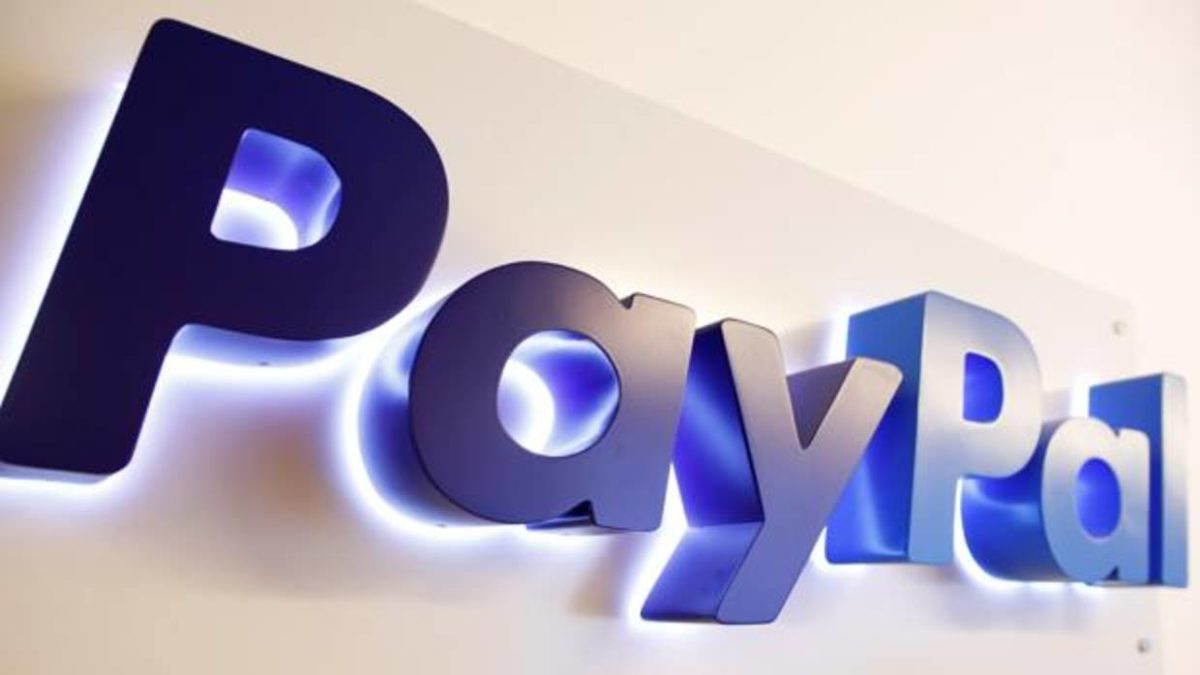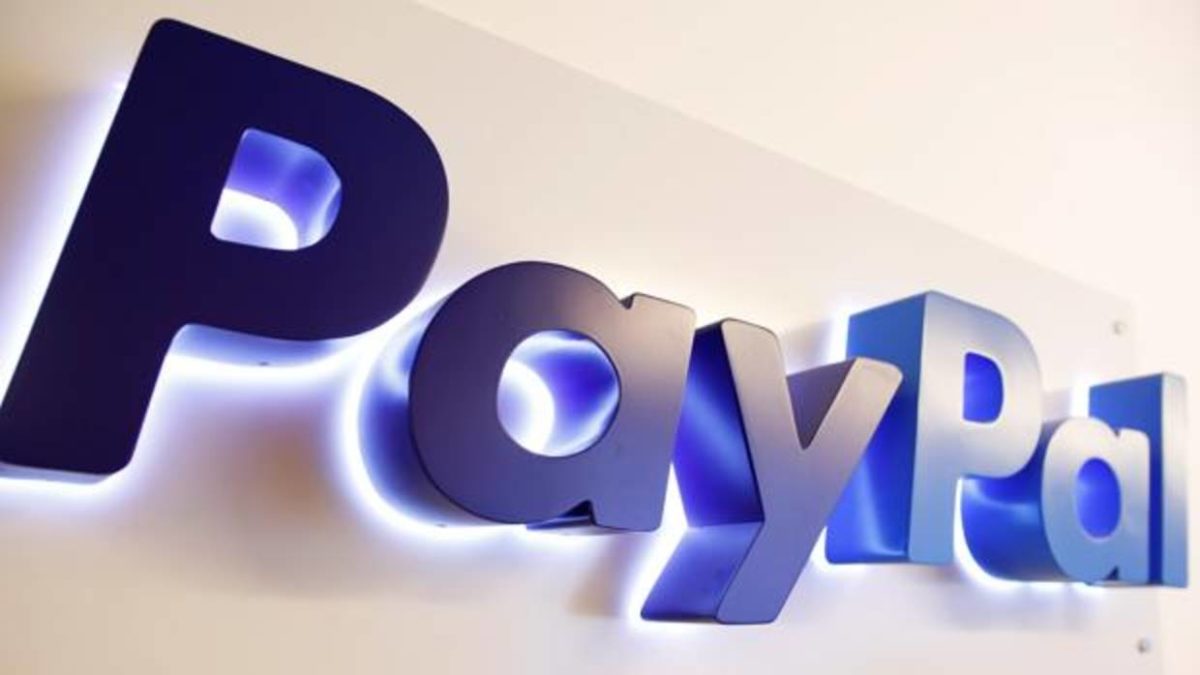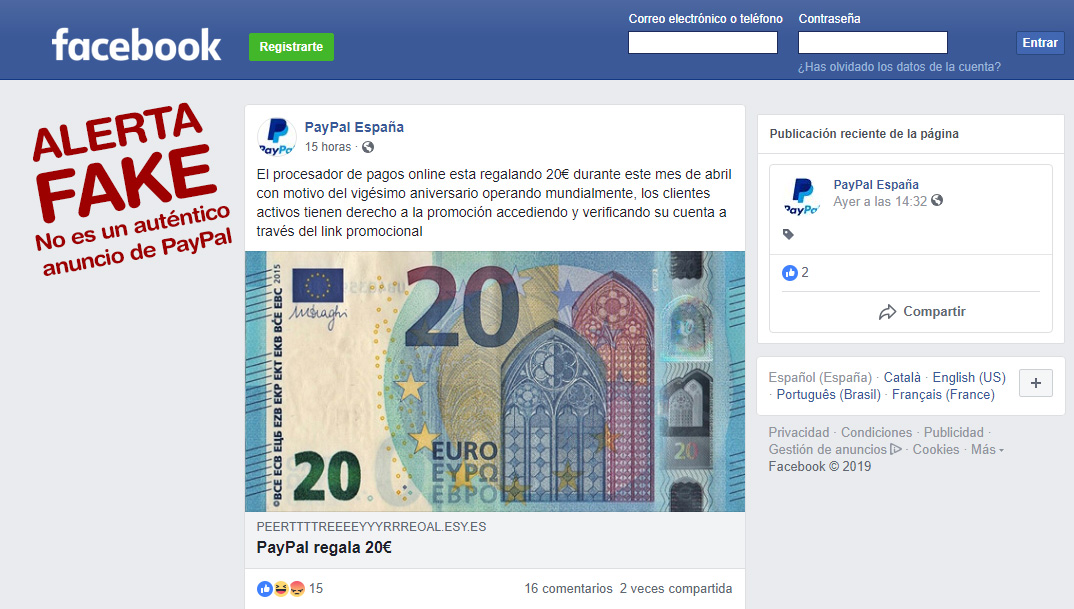
This fake PayPal ad on Facebook promises 20 euros for free

There is a maxim that every user should be burned in memory that says: 'If it is too good to be true, it is not.' Secure jobs at Mercadona, free flights on Ryanair, a free Lancôme makeup chest … All those messages that we see in networks and messaging applications, too juicy to let them pass are the first ones that the user should avoid, because the only intention of which what is published is done with the personal data of the user, his credit card number and different passwords of access to services.
Beware of this PayPal ad on Facebook
And, sadly, this type of scams do not seem to end. The last one we know about is a fake Paypal ad that promises to give away to the users a check with 20 euros. All you have to do is verify your account through a link, of course false. The publicity of the same says thus:
"The online payment processor is giving away € 20 during this month of April on the occasion of the twentieth anniversary operating worldwide, active customers are entitled to the promotion by accessing and verifying their account through the promotional link"
This type of scam, very common especially in emails, is called 'Phishing'. With Phishing, the cybercriminal supplants the image and design of a web recognized and, through it, is done with the user's credentials or 'forces' you to make certain movements that end up with a hole in the current account of the affected. There are different ways to avoid a Phishing attack, such as verifying, conscientiously, if the referred link fits the reality or if strange characters appear in the same. In the case of the PayPal scam, the URL to which the user was directed was: 'facebook.com/PayPal-España-405625166683700 '. It is obvious that the web does not coincide, at all, with reality, since we see a numeric code that does not exist in the legitimate URL: 'es-es.facebook.com/PayPalEspana/'.
Phishing: a recurring way of fraud
Thanks to Google Chrome, pre-installed, an alert against Phishing and other scams, the user, when trying to enter the URL addressed through the ad, you will see as it appears on the screen a warning of danger: ""The website you're going to access is misleading. It is possible that attackers who are in peerttttreeeeyyyrrreoal.esy.es try to trick you into taking a dangerous action, such as installing software or revealing your personal information (for example, passwords, phone numbers or credit cards). "

Publicado en TuExperto el 2019-05-04 06:51:11
Autor: Antonio Bret
Visite el articulo en origen aqui





